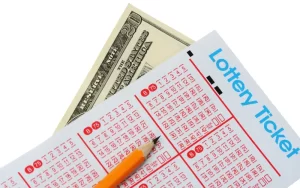The lottery has been a source of excitement, dreams, and life-changing wins for decades. However, every legitimate lottery operates under a specific set of lottery rules that govern how it is played, how prizes are awarded, and how fairness is ensured. Understanding these rules is essential for any player who wants to participate responsibly and maximize their chances within the legal framework.
In this detailed guide, we will explore the lottery rules that apply to both traditional and online formats, covering eligibility, ticket purchases, draw processes, and claiming prizes.
Eligibility Requirements for Lottery Participation
Before purchasing a ticket, it’s vital to know who is allowed to participate. Most official lotteries have strict eligibility guidelines, which generally include:
- Minimum Age Requirement – In most jurisdictions, the legal age to play the lottery is 18, though in some areas it may be higher.
- Residency Rules – Some lotteries require players to be residents of a particular country or state.
- Legal Status – Individuals involved in the lottery’s administration or related organizations are typically prohibited from participating to prevent conflicts of interest.
Failure to meet eligibility requirements can result in disqualification, even if you hold a winning ticket.
Purchasing Lottery Tickets: Rules and Regulations
The process of buying tickets is one of the most important aspects of lottery rules. Whether you are buying in-person or online, there are strict protocols:
- Authorized Sellers Only – Tickets must be purchased from licensed retailers or official online platforms.
- Ticket Validation – All tickets have a unique code or barcode, and they must be printed or digitally issued to be considered valid.
- Payment Methods – Depending on jurisdiction, accepted payment methods may include cash, debit cards, or secure online transactions. Credit cards may be restricted in some regions.
- Purchase Deadlines – Each draw has a cut-off time for ticket sales, after which purchases will apply to the next draw.
Understanding Lottery Draw Processes
The draw process is a critical component of lottery rules, ensuring transparency and fairness:
- Random Number Generation (RNG) – Some lotteries use mechanical ball machines, while others employ certified RNG software.
- Draw Schedule – Most lotteries have set days and times for draws, which are publicly announced.
- Independent Oversight – Official draws are typically monitored by auditors or regulatory bodies to prevent manipulation.
Transparency in the draw process builds trust and ensures that all participants have an equal chance.
Prize Structures and Payout Rules

Winning a lottery is exciting, but knowing the prize rules is essential to avoid confusion:
- Fixed Prize vs. Pari-Mutuel – In a fixed prize system, payouts are predetermined, while in pari-mutuel systems, prize amounts vary based on total ticket sales and number of winners.
- Jackpot Rollover – If no one wins the jackpot, it may roll over to the next draw, increasing the prize pool.
- Secondary Prizes – Many lotteries offer smaller prizes for matching fewer numbers.
- Annuity vs. Lump Sum – Some lotteries allow winners to choose between receiving payments over time (annuity) or a one-time lump sum.
Rules for Claiming Lottery Prizes
Claiming a prize involves specific steps and documentation:
- Claim Deadlines – Depending on the jurisdiction, winners may have anywhere from 30 days to a year to claim their prize.
- Verification Process – Winners must present the original ticket and identification. Online winners may need to verify their account details.
- Taxation Rules – Lottery winnings may be subject to federal, state, or local taxes. In some countries, the lottery deducts taxes before payout.
- Public Disclosure – In certain jurisdictions, winners’ names and prize amounts are public record, while others allow anonymity.
Responsible Gaming and Ethical Guidelines
Lotteries emphasize responsible play to prevent addiction and financial harm:
- Spending Limits – Some platforms allow players to set daily, weekly, or monthly spending caps.
- Self-Exclusion Programs – Players can voluntarily ban themselves from participation.
- Awareness Campaigns – Official lotteries often provide educational materials about the risks of excessive gambling.
Online Lottery Rules and Digital Compliance
With the rise of digital platforms, online lottery play is increasingly popular, but it comes with its own set of lottery rules:
- Account Registration – Players must create verified accounts with accurate personal details.
- Geolocation Restrictions – Online platforms use location verification to ensure compliance with jurisdictional laws.
- Secure Transactions – All payments and withdrawals must be encrypted to protect users’ financial data.
- Digital Ticket Storage – Online tickets are stored in a secure account wallet, reducing the risk of loss.
International Lottery Rules for Cross-Border Play
Some players participate in lotteries outside their home country, but this involves extra considerations:
- Currency Exchange – Winnings may be paid in the local currency of the lottery, requiring conversion.
- Taxation Across Borders – Players may be subject to taxes in both the country of purchase and their home country.
- Ticket Purchase Legality – Not all countries permit foreign participation, and violating these laws can lead to forfeiture.
Consequences of Violating Lottery Rules
Breaking lottery rules can lead to serious consequences, including:
- Disqualification of Winnings – Even if you win, breaking the rules can void your claim.
- Fines and Penalties – Authorities can impose financial penalties for illegal participation.
- Legal Action – Fraudulent activities, such as using fake identities or tampering with tickets, can result in criminal charges.
Final Thoughts
Understanding and following lottery rules is not just a matter of compliance—it’s the foundation of fair play and responsible participation. Whether you play locally or online lottery, knowing these rules ensures that you can enjoy the experience safely while maximizing your legitimate chances of winning.







